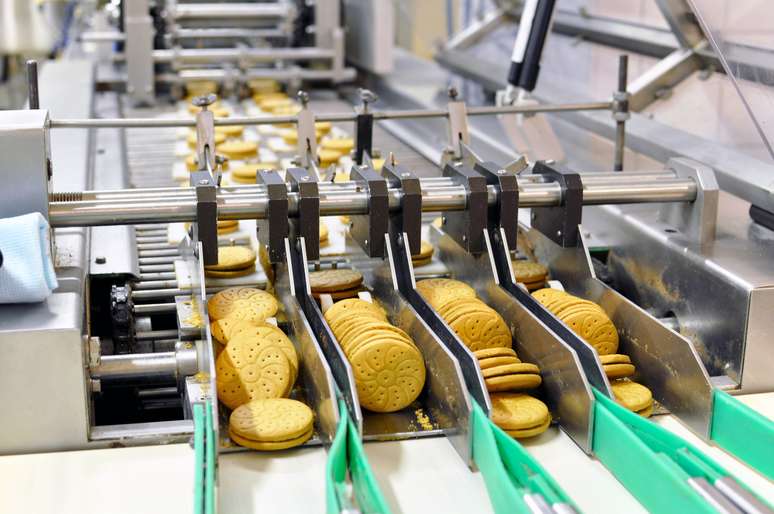Introduction
In the dynamic and busy world of contract food manufacturing, making certain risk-free as well as dependable production is of utmost relevance. With the raising demand for high-quality food, it is vital for agreement manufacturers to follow rigorous guidelines as well as requirements. One such criterion that plays a crucial function in ensuring the safety and dependability of contract food manufacturing in Australia is Good Production Practices (GMP). In this short article, we will certainly check out the importance of GMP in the context of contract food manufacturing in Australia.
Contract Food Production: An Overview
Before diving right into the role of GMP, let's initial comprehend what contract food manufacturing requires. Contract food manufacturing refers to the procedure where a business contracts out the manufacturing of its food to a specialized producer. This enables business to focus on various other facets of their organization, such as advertising as well as circulation, while leaving the production process to experts.
In Australia, contract food manufacturing has actually acquired substantial traction as a result of its countless benefits. It enables firms to tap into the competence and also resources of experienced manufacturers, decreases operational prices, and gives access to advanced centers. However, with these advantages come numerous obstacles, consisting of maintaining item quality, adhering to security regulations, and also making certain consistency throughout the manufacturing process.
The Relevance of GMP in Contract Food Manufacturing
Good Manufacturing Practices (GMP) are a set of standards that describe the minimum needs for ensuring safe as well as reliable production in different markets, including food production. These practices incorporate all elements of manufacturing, from facility layout to employees training as well as item testing.
GMP plays a vital function in contract food manufacturing by developing quality assurance actions that protect consumers from prospective carcinogen. By sticking to GMP requirements, agreement makers can ensure that their procedures are effective, consistent, and also certified with regulatory requirements. This not just safeguards public health but additionally boosts the reputation and integrity of both the manufacturer and also the brand they are generating for.
The Crucial element of GMP in Contract Food Manufacturing
To recognize exactly how GMP makes sure safe as well as reputable contract food manufacturing in Australia, let's explore a few of its key elements:

1. Facility Layout and Maintenance
Proper center design is necessary to reduce the dangers of contamination as well as guarantee a hygienic manufacturing atmosphere. GMP guidelines define needs for format, construction products, ventilation, lighting, and also waste administration systems. Normal upkeep and cleaning are also vital to avoid the build-up of virus or contaminants.
2. Employee Training
Well-trained personnel are the foundation of any successful contract food manufacturing procedure. GMP stresses the relevance of training staff members on hygiene techniques, proper handling of devices as well as ingredients, irritant control, as well as personal protective procedures. Ongoing training programs make certain that employees stay updated with sector best practices.
3. Raw Material Control
GMP mandates strict control over raw materials made use of in the production process. This includes confirming distributor qualifications, carrying out inbound examinations for quality assurance, applying proper storage treatments, and preserving traceability throughout the supply chain. Following these controls aids protect against contamination and also makes certain that only safe as well as top quality components are used.

4. Item Examining as well as Quality Assurance
Regular item testing is an integral component of GMP to validate that items meet called for specifications as well as safety and security criteria. This consists of microbiological screening, chemical analysis, sensory evaluation, and shelf-life studies. By conducting detailed testing at different phases of production, agreement producers can determine possible concerns beforehand as well as take rehabilitative activities promptly.
5. Paperwork and Record-Keeping
Accurate paperwork is necessary to demonstrate conformity with GMP guidelines. This includes preserving documents of resources providers, devices calibration, workers training, cleaning up routines, set production documents, as well as product release documentation. Excellent documents methods make it possible for producers to trace any problems or variances and take suitable corrective actions.

6. Audits and also Inspections
Regular audits and inspections are carried out by regulative bodies or third-party organizations to ensure compliance with GMP criteria. These assessments examine the efficiency of an agreement manufacturer's top quality administration system, recognize locations for renovation, as well as offer assurance that all required controls remain in place.
FAQs about GMP in Contract Food Manufacturing
What is the role of GMP in contract food manufacturing? GMP plays an essential function in guaranteeing safe and also trustworthy contract food manufacturing by establishing guidelines for quality control, center layout, workers training, item screening, paperwork, as well as audits.
How does GMP add to consumer safety? By sticking to GMP requirements, agreement producers can lessen the dangers of contamination and make sure that food meet required safety criteria. This shields customers from potential health hazards related to unsafe food.
What are the repercussions of non-compliance with GMP guidelines? Non-compliance with GMP guidelines can have severe repercussions, including product remembers, lawful fines, damages to brand online reputation, and possible harm to consumers' health and wellness. It is necessary for contract producers to prioritize adherence to these standards.
Is GMP obligatory for contract food manufacturing in Australia? Yes, GMP is necessary for all contract food producers in Australia. The Australian government has executed strict regulations to guarantee that all food fulfill the greatest safety as well as top quality standards.
How can contract manufacturers implement GMP successfully? Contract suppliers can carry out GMP effectively by purchasing durable high quality management systems, conducting routine training programs for staff members, collaborating with relied on suppliers, preserving precise documents, and undertaking routine audits and inspections.
Can GMP certification improve an agreement producer's credibility? Yes, acquiring GMP certification demonstrates a contract supplier's dedication to generating safe and also top notch foodstuff. It boosts their credibility and trustworthiness amongst customers and also customers alike.
Conclusion
In the world of contract food manufacturing in Australia, adhering to Good Manufacturing Practices (GMP) is essential for ensuring risk-free and dependable manufacturing. GMP standards include different facets of the manufacturing procedure, including facility layout, personnel training, resources control, product screening, documents, as well as audits. By executing as well as keeping these methods, agreement makers can protect customers from possible health hazards, boost their online reputation, and also contribute to the overall https://lanedhni.bloggersdelight.dk/2023/12/29/lasting-solutions-contract-food-manufacturing-as-well-as-the-atmosphere-in-australia-4/ safety and top quality of the food industry. As the demand for contract food manufacturing continues to expand, it is necessary for producers to prioritize GMP compliance to meet regulatory needs and go beyond consumer expectations.